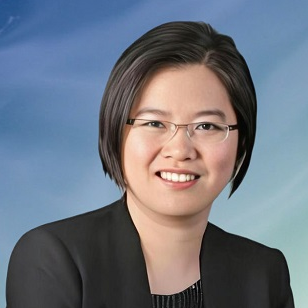Special Interview with Prof. Joanne Ngeow Yuen Yie
Cancer genetics is rapidly reshaping the future of precision medicine, and few leaders drive this transformation more actively than Prof. Joanne Ngeow Yuen Yie, a physician-scientist at the forefront of hereditary cancer research. She has played a key role in developing clinical pathways for major cancer susceptibility genes such as CHEK2, BRCA, and PALB2, improving how clinicians identify high-risk individuals and implement early detection and prevention strategies. In this interview on 16 July 2025, Prof. shares what inspired her to pursue cancer genetics, reflects on the clinical impact of integrating genetic testing into routine care, and highlights the continued need for better public education and supportive policies to ensure wider access to testing. She also offers her forward-looking insights into where the next breakthroughs in genetic technologies may emerge in the coming three to five years---aiming toward a future where cancer prevention is more equitable, personalized, and proactive for all.
Questions:
1. How did you enter the field of cancer genetics, and what inspired you to pursue this path?
2. You are a key driver in the development of clinical pathways for multiple cancer susceptibility genes, such as CHEK2, BRCA, and PALB2. What changes have these efforts brought to clinical practice?
3. In your view, what efforts are still needed in public education and policy to make genetic testing more accessible to the general population?
4. Looking ahead to the next 3 to 5 years, in which diseases or application fields do you think genetic testing technology is most likely to achieve significant breakthroughs?
About Prof. Joanne Ngeow Yuen Yie:

Prof. Joanne Ngeow Yuen Yie is an internationally recognized leader in cancer genetics and precision prevention. She currently serves as Professor and Head of the Cancer Genetics Service at the National Cancer Centre Singapore (NCCS) and holds a joint appointment at Duke-NUS Medical School. Trained in clinical genetics, oncology, and population health, Prof. Ngeow has dedicated her career to identifying hereditary cancer risks and translating genomic discoveries into practical clinical pathways. She has played a leading role in advancing the clinical management of key cancer susceptibility genes such as CHEK2, BRCA, and PALB2, and is actively involved in developing national and regional guidelines for genetic testing and counseling in Asia. Prof. Ngeow serves on multiple international committees and expert panels that shape the future of hereditary cancer care, contributing extensively to research, clinical education, and policy development aimed at expanding access to precision medicine across diverse populations.
Editor: Yana Wei
Production Editor: Ting Xu
Respectfully submitted by the Editorial Office of Journal of Translational Genetics and Genomics









